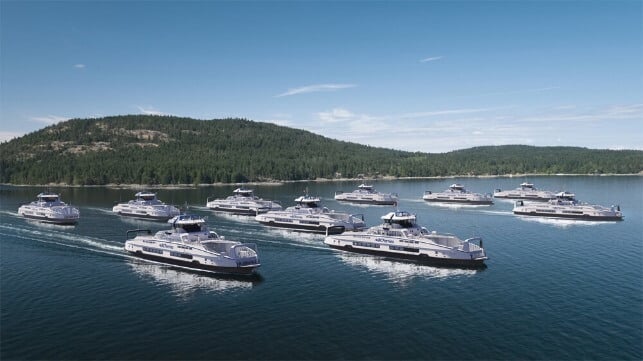Powering Maritime Innovation: Embracing Hydrogen for a Cleaner Future
Key Ideas
- Fossil fuels have historically powered the maritime industry, but a global push for cleaner energy has led to a shift towards hydrogen as a sustainable alternative.
- Hydrogen's high energy density and environmentally friendly combustion byproduct make it an attractive option for reducing the industry's environmental impact.
- Collaboration between industry stakeholders, OEMs, and tech firms is driving innovation in hydrogen-compatible engines, safety protocols, and digital management systems.
- Despite infrastructure challenges, partnerships and initiatives are actively working towards scalable hydrogen solutions in the maritime sector, emphasizing the importance of collaboration for progress.
For over a century, fossil fuels have been the driving force behind marine propulsion, but the maritime industry is now at a pivotal moment. With a growing focus on environmental sustainability, the industry is exploring cleaner energy alternatives to reduce its carbon footprint. In this quest, hydrogen has emerged as a promising solution due to its high energy density and eco-friendly combustion byproduct. While hydrogen's adoption in sectors like aerospace and automotive was initially hindered by infrastructure challenges, the maritime industry is now actively investigating its potential. The industry's first significant milestone in hydrogen fuel technology was marked by the introduction of the dual-fuel passenger shuttle Hydroville in 2017.
Key players in the industry, such as Damen and Zero Emission Industries (ZEI), are spearheading hydrogen initiatives, developing dual-fuel systems and fuel cell powertrains tailored for maritime use. Collaboration with OEMs is crucial for advancing hydrogen-compatible engines and enhancing safety measures. Advanced electronic controls are optimizing hydrogen fuel systems, enabling efficient fuel usage and enhancing vessel automation. ZEI is paving the way in safety protocols for hydrogen storage and handling aboard vessels, ensuring compliance with the highest safety standards.
While the industry acknowledges the promise of hydrogen, infrastructure challenges persist. To address these hurdles, partnerships between private and public entities are being forged to develop scalable hydrogen solutions. Naval architecture firms like Glosten are pioneering hydrogen-fueled vessel designs, working closely with shipbuilders and classification societies to refine hydrogen fuel cell systems. Organizations like the California Hydrogen Business Council are facilitating collaborative efforts to develop hydrogen-focused port infrastructure, emphasizing the importance of cleaner and safer ports.
Overall, the maritime industry's shift towards embracing hydrogen as a cleaner energy source highlights a commitment to environmental stewardship and innovation. Through collaboration and technological advancements, the industry is paving the way for a more sustainable and efficient future in marine propulsion.
Topics
Fuel Cells
Environmental Impact
Clean Energy
Collaboration
Marine Industry
Fuel Technology
Safety Measures
Latest News
